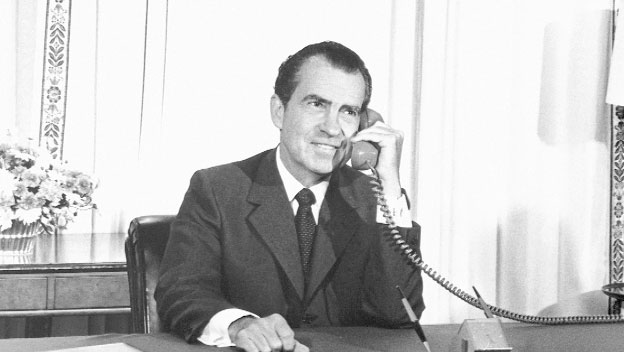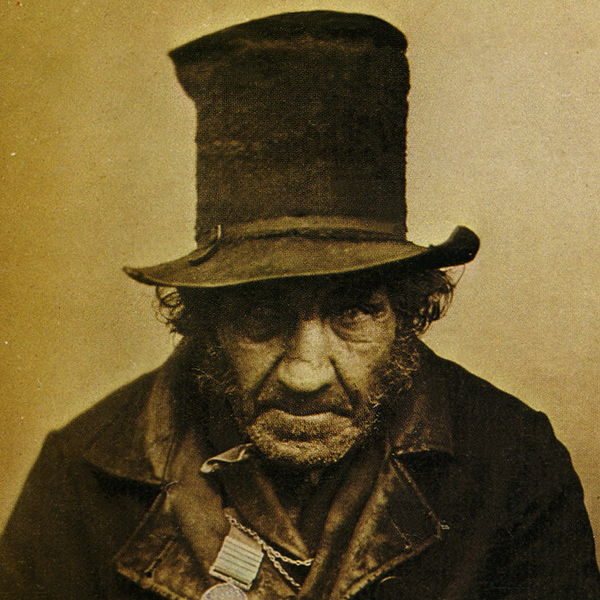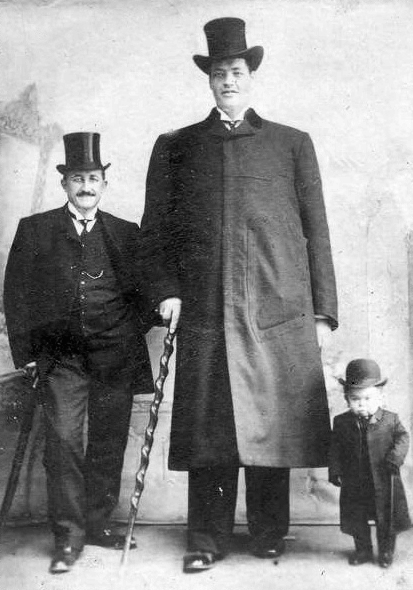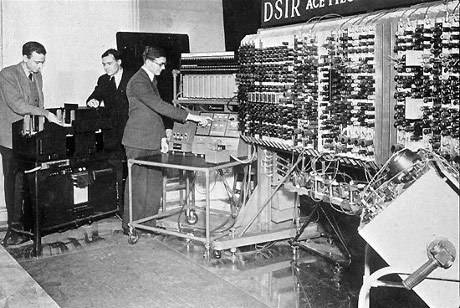Something like this (which I definitely don’t agree with): “Even though we don’t live under anything resembling a tyranny right now, it is possible in the future, for unforeseen reasons, that our government could become one. If we, unlike, say, the people of Syria, are heavily armed with very powerful weapons, we can prevent this oppression. Further, if assault weapons are criminalized and unavailable through the current avenues of attainment, a black market will develop and the money from such purchases can be funneled into other illegal activities. Yes, we fully understand our beliefs mean that sometimes these incredibly destructive weapons will fall into the hands of people who are mentally ill or criminal or domestic terrorists, and they will be used to harm and kill innocent people, causing great pain for their families and communities. As regrettable as this is, in the big picture we believe that a greater loss of life and liberty can occur if these weapons are kept from citizens.”
You are currently browsing the yearly archive for 2012.
belly for rent – $80000 (Ny Queens)
Hello my name is Karla im 23 years old very physically and mentally. Willing to take any medical test.. I have kid 3 years old very gorgeous!!!.. Looking forward to help couples or ppl with desires of being a mom / dad by renting my belly.
Tags: Karla
Charlton Heston interviewed about his career, including parts he would have rather forgotten, by the gleefully obnoxious Russell Harty in 1979.
Tags: Charlton Heston, Russell Harty
I would guess bio-printers will eventually make organ scarcity a problem of the past, but until that occurs should people be allowed to sell their organs? Moral philosopher Janet Radcliffe Richards has long argued that the trade, while unsettling, should be permitted. An excerpt from her reasoning:
I find trade in organs as intuitively repugnant as does everyone else but strong feelings of a moral kind, by themselves, cannot form reliable guides for action. Remember the traditional reactions to inter-racial marriage, unfeminine women and homosexuality – themselves now widely regarded as repugnant? If we find the trade repugnant because of the harm it does to vendors, we must find the idea of making their situation worse by stopping the trade more repugnant. The worse we think it is to sell a kidney, the more repugnant should we find any objectively worse alternative. We should find it much more repugnant that the Turkish father should be forced to keep his kidney and watch his daughter die than that he should sell it and save her. We should also find our repugnance proportionately lessened if we could assure high standards of care that would make the harm minimal.
This does not prove conclusively that organ sales should be allowed; good arguments for prohibition may still be found. The fact that so many bad arguments are used, however, shows that good ones must be hard to come by, and it also suggests that our strong feelings of repugnance are systematically distorting our arguments. We are in effect treating the removal of our own feelings of disgust as more important than the real interests of the people on whose behalf we claim to be concerned. It is therefore morally essential to understand the power of these feelings so that we can think impartially about the problem.
In the meantime, until someone produces a far better argument than has yet appeared, there seems to be no escaping the provisional conclusion that the prohibition of the sale of organs does substantial harm of various sorts, that these have not been shown to be justified and therefore that we should not be trying to prevent the selling of organs but rather to lessen whatever harms are now involved and to increase the benefits to both vendors and purchasers by getting the trade properly regulated.•
Tags: Janet Radcliffe Richards
Sad to hear of the passing of pioneering female astronaut Sally Ride. I haven’t been able to find any footage of her you haven’t seen a million times already, but here’s a 1977 clip of some of the other women who were vying for the distinction that Ride eventually earned.
Tags: Ann Whittaker, Caroline Griner, Mary Johnston, Sally Ride
From the Economist, an explanation of the Uncanny Valley Effect, which tries to explain human unease with examples of AI that seem real and unreal at once:
“ARTIFICIALLY created beings, whether they be drawn or sculpted, are warmly accepted by viewers when they are distinctively inhuman. As their appearances are made more real, however, acceptance turns to discomfort until the point where the similarity is almost perfect, when comfort returns. This effect, called ‘the uncanny valley’ because of the dip in acceptance between clearly inhuman and clearly human forms, is well known, particularly to animators, but why it happens is a mystery. Some suggest it is all about outward appearance, but a study just published in Cognition by Kurt Gray at the University of North Carolina and Daniel Wegner at Harvard argues that there can be something else involved as well: the apparent presence of a mind where it ought not to be.
According to some philosophers the mind is made up of two parts, agency (the capacity to plan and do things) and experience (the capacity to feel and sense things). Both set people apart from robots, but Dr Gray and Dr Wegner speculated that experience in particular was playing a crucial role in generating the uncanny-valley effect. They theorised that adding human-like eyes and facial expressions to robots conveys emotion where viewers do not expect emotion to be present. The resulting clash of expectations, they thought, might be where the unease was coming from.”
••••••••••
Facial motion test of AI baby:
Tags: Daniel Wegner, Kurt Gray
Augmented catalog by the Swedish manufacturer of furniture and meatballs. (Thanks Wired.)
Anderson Cooper seems like a great guy and has the chops to be an excellent journalist, but he also has a hero complex that sometimes gets in the way of his work. In his telecast following the horrific Aurora tragedy, Cooper made a point to say that he didn’t want to say the name of the shooter and would spend as little time as possible on him so as not to glorify him. It was grandstanding nonsense.
Does that suggest that other journalists who’ve examined the killer’s past and motives are somehow misbehaving? Can’t facts be gathered and disseminated without the glorification of a murderer? Of course they can.
The only way to comfort the afflicted and afflict the comfortable is by seeking truth. I do want to hear the name of the killer, as unpleasant as it will sound. I want to know his story. I want to know about his family. Did he develop schizophrenia as he entered his twenties? Was this a crime beyond motive by someone who was too disturbed for reason? Were there indications of his deteriorating state at his university, perhaps some record his behavior? Are there adequate resources for families and educators to get help for such a person? If so, what went wrong? Where did the system fail?
If some people are annoyed by attention being focused on someone who perpetrated such a horrible crime, so be it. That kind of enlightenment may help us avoid similar tragedies in the future. The role of the journalist isn’t to soothe people in a time of crisis or tragedy; that’s something to be accomplished by family, friends, clergy, civic leaders and mental-health professionals. Journalists should always be decent but not necessarily popular.•
Tags: Anderson Cooper

“The tail was cut off and stuffed and brought to this city and is now on exhibition in a water front saloon.”
A ridiculous seafaring story, which originally appeared in the San Francisco Chronicle, was republished in the December 28, 1884 Brooklyn Daily Eagle. The article:
“The whaling bark Alaska, which arrived in this port a few days ago from the Arctic Ocean, brings a strange story of the narrow escape from death of six of her crew. The first officer, George Johnson, stated the circumstances to a Chronicle reporter yesterday, as follows: On the 16th of last October, when the vessel was forty-six miles south of Alaska, an object was perceived in the distance whose proportions and shape indicated it to be a monster sea lion. A boat was immediately lowered and placed in charge of First Officer Johnson and five of the crew. As the distance was being decreased between the boat and the huge animal they became convinced that it was the famed sea serpent. When they came within a few hundred yards the monster made a mad dash for the boat, striking out its immense tail against the craft. Several of the occupants were precipitated into the water, and were rescued with difficulty. A harpoon and lance were fired into the body of the beast and it disappeared beneath the surface. Half an hour later it reappeared, floating on the water, dead. It was secured with ropes and towed to the vessel and hoisted on the deck. There the capture was seen to be a villainous looking thing. Its head closely resembled that of an alligator, while the body resembled that of a lizard. It measure thirty-three feet in length, the tail alone being nine feet long. The tail was cut off and stuffed and brought to this city and is now on exhibition in a water front saloon.”
Tags: George Johnson
President Richard Nixon phoned the Apollo 11 astronauts while they were on the moon. Unsurprisingly, the call was taped.
McCandless: …We’d like to get both of you in the field-of-view of the camera for a minute. (Pause) Neil and Buzz, the President of the United States is in his office now and would like to say a few words to you. Over.
Armstrong: That would be an honor.
McCandless: Go ahead Mr. President. This is Houston out.
Nixon: Hello, Neil and Buzz. I’m talking to you by telephone from the Oval Room at the White House. And this certainly has to be the most historic telephone call ever made. I just can’t tell you how proud we all are of what you’ve done. For every American, this has to be the proudest day of our lives. And for people all over the world, I am sure they too join with Americans in recognizing what an immense feat this is. Because of what you have done, the heavens have become a part of man’s world. And as you talk to us from the Sea of Tranquility, it inspires us to redouble our efforts to bring peace and tranquility to Earth. For one priceless moment in the whole history of man, all the people on this Earth are truly one: one in their pride in what you have done, and one in our prayers that you will return safely to Earth.
Armstrong: Thank you Mr. President. It’s a great honor and privilege for us to be here, representing not only the United States, but men of peace of all nations, and with interest and curiosity, and men with a vision for the future. It’s an honor for us to be able to participate here today.
Nixon: And thank you very much and I look forward – all of us look forward – to seeing you on the Hornet on Thursday.
Armstrong: Thank you.
Aldrin: I look forward to that very much, sir.•
Tags: Richard
The opening of Esther Dyson’s new Project Syndicate essay, which suggests we should apply the self-quant movement to communities:
“I have written previously about the Quantified Self movement – individuals equipped with the tools (monitoring devices and software) needed to measure their own health and behavior (and, by doing so, to improve them). This movement is not quite sweeping the world, but it is making a difference. So-called Quantified Selfers are monitoring their blood pressure, sleep cycles, and body mass. At least some of them are using that information to improve their health and live more productively.
In the same way, I predict (and am trying to foster) the emergence of a Quantified Community movement, with communities measuring the state, health, and activities of their people and institutions, thereby improving them. Just consider: each town has its own schools, library, police, roads and bridges, businesses, and, of course, people. All of them potentially generate a lot of data, most of it uncollected and unanalyzed. That is about to change.” (Thanks Browser.)
••••••••••
Early quantified community, 1977:
Tags: Esther Dyson
From the “3000 A.D.” section of FutureTimeline.net, which predicts the far-flung:
“Purely biological humans are typically 7ft tall now, with lifespans of 120+
For centuries now, the technological singularity has produced enormous wealth and prosperity throughout the solar system. Across-the-board improvements in healthcare, education and living standards have led to humans evolving into a race of giants – 7ft tall, muscular and highly athletic, with lifespans of 120+. Note that this lifespan refers to purely biological (non-cyborg) humans, who comprise a small minority by now. The vast majority of citizens have opted for genetic engineering and biotechnology upgrades which offer practical immortality”
From Swiss sociologist Dirk Helbing’s Edge essay,”A New Kind Of Socio-Inspired Technology,” a passage about our stunning level of connectivity:
“Our future information society will be characterized by computers that behave like humans in many respects. In ten years from now, we will have computers as powerful as our brain, and that will really fundamentally change society. Many professional jobs will be done much better by computers. How will that change society? How will that change business? What impacts does that have for science, actually?
There are two big global trends. One is big data. That means in the next ten years we’ll produce as many data, or even more data than in the past 1,000 years. The other trend is hyperconnectivity. That means we have networking our world going on at a rapid pace; we’re creating an Internet of things. So everyone is talking to everyone else, and everything becomes interdependent. What are the implications of that? Well, first of all, of course, we have wonderful new gadgets like Facebook, for example, so we can network with each other. We have new services, new opportunities, and that is just fantastic.
But on the other hand, it turns out that we are, at the same time, creating highways for disaster spreading. We see many extreme events, we see problems such as the flash crash, or also the financial crisis. That is related to the fact that we have interconnected everything. In some sense, we have created unstable systems. We can show that many of the global trends that we are seeing at the moment, like increasing connectivity, increase in the speed, increase in complexity, are very good in the beginning, but (and this is kind of surprising) there is a turning point and that turning point can turn into a tipping point that makes the systems shift in an unknown way.”
Tags: Dirk Helbing
From the BBC: “Five million ‘test tube babies’ have now been born around the world, according to research presented at a conference of fertility experts. Delegates hailed it as a ‘remarkable milestone’ for fertility treatments. The first test tube baby, Louise Brown, was born in the UK in July 1978. Her mother Leslie Brown died last month.”
The birth of the first test-tube baby:
Tags: Leslie Brown, Louise Brown
I don’t know what became of Robert Olsen’s modernist purple cube furniture, but as this 1973 video demonstrates, it was really compact and adaptable.
Tags: Robert Olsen
From the April 2, 1844 Brooklyn Daily Eagle:
“Among the passengers on board of the packet ship Yorkshire, just arrived, are a giant, standing nearly eight feet in his boots; a giantess, about seven feet in height, and a dwarf twenty-three inches tall, or thereabout, being three inches shorter than the famous Tom Thumb. The giant and giantess are man and wife, and will make their first appearance at Barnum’s Museum.”
The result of Greg Lindsay’s collaboration with John D. Kasarda, Aerotropolis: The Way We’ll Live Next, grew from a 2010 article the journalist wrote for Fast Company about New Songdo City, South Korea’s ambitious airport-centric, insta-city. The opening:
“Stan Gale is exultant. The chairman of Gale International yanks off his tie, hitches up his pants, and mops the sweat and floppy hair from his brow. He’s beaming like a proud new papa, sprung from the waiting room and handing out cigars to whoever happens by. Beckoning me to follow, he saunters across eight lanes of traffic toward his baby, delivered prematurely days before.
Ten years ago, Gale was a builder and flipper of office parks who would eventually become known for knocking down the Boston landmark Filene’s Basement and replacing it with a hole in the ground. But Gale’s fate began to change in 2001 with a phone call from South Korea. The Korean government had found his firm on the Internet and made an offer everyone else had refused. The brief: Gale would borrow $35 billion from Korea’s banks and its biggest steel company, and use the money to build from scratch a city the size of downtown Boston, only taller and denser, on a muddy man-made island in the Yellow Sea. When Gale arrived to see the site, it was miles of open water. He signed anyway.
New Songdo City won’t be finished until 2015 at least, but in August, Gale cut the ribbon on the 100-acre ‘Central Park’ modeled, like so much of the city, on Manhattan’s. Climbing on all sides will be a mix of low-rises and sleek spires — condos, offices, even South Korea’s tallest building, the 1,001-foot Northeast Asia Trade Tower. Strolling along the park’s canal, we hear cicadas buzzing, saws whining, and pile drivers pounding down to bedrock. I ask whether he’s stocked the canal with fish yet. ‘It’s four days old!’ he splutters, forgetting he isn’t supposed to rest until the seventh.
As far as playing God (or SimCity) goes, New Songdo is the most ambitious instant city since Brasília 50 years ago. Brasília, of course, was an instant disaster: grandiose, monstrously overscale, and immediately encircled by slums. New Songdo has to be better because there’s a lot more riding on it than whether Gale can repay his loans. It has been hailed since conception as the experimental prototype community of tomorrow. A green city, it was LEED-certified from the get-go, designed to emit a third of the greenhouse gases of a typical metropolis its size (about 300,000 people during the day). It’s an ‘international business district’ and an ‘aerotropolis’ — a Western-oriented city more focused on the airport and China beyond than on Seoul. And it’s supposed to be a ‘smart city,’ studded with chips talking to one another, designated as such years before IBM found its ‘Smarter Planet’ religion.”
••••••••••
A Cisco video about Songdo:
Tags: Greg Lindsay, John D. Kasarda, Stan Gale
People currently living under tyrants in the Middle East want political freedom and empowerment. But in free countries in the West, we want designer stuff. What we wouldn’t trade for it. We’re citizens acting as if we’re merely consumers. From David Wallace-Wells’ smart interview with Martin Amis in New York, a section about the London riots of 2011:
“Were you in London for the riots?
I wasn’t. As I recall, it was, as these things usually are, set off by a bit of heavy-handed policing. It’s interesting that there’s such a contrast between the police in America and there, in how they’re viewed by the working class, or whatever you want to call them—the proletariat, the many. In America, the policeman is a working-class hero. In England, the policeman is a working-class traitor. Lionel propounds this view himself—the police undertake to protect the rich man’s shilling. As if everyone’s raring to have a redistribution of wealth. That’s why there’s such violent names for the police in criminal England—they call them not only the filth, the filth, but also the puss. They’re the lowest of the low. When policemen go to prison in England, they have as bad a time as a pedophile.
The police in America are, to my senses, quite fascistic—you know, immediate end to all humor, end of all human contact; it’s a real assertion of authority in a way that’s very rare in England. In England, police are, softly softly, “Now, sir, come on, sir.” It’s a humoring voice, not an authoritarian one. I don’t understand the sparking incident. But, then, as the phrase is, it’s all off, then. When a riot starts, it’s all off—meaning, the law suspended. It’s also interesting they used social networking to get people around to certain malls where the police presence was small.
Also that they were gravitating towards malls at all.
Yeah. It was very sort of un-left-wing, in the sense that they all flooded into these sports-equipment shops and tried on all these trainers. A rioter doesn’t usually try things on. Or a looter—it was looting, really, rather than rioting.
But, I mean, what conclusions are people trying to draw from that? It’s just the sort of thing that happens every now and then. Very hard to see any kind of social protest in it. It was opportunistic, and cynical, I think. And I was horrified to learn some of the sentences that were being handed down, for people with no record, first-time offenders, deterrent sentences, exemplary sentences. So, you know, incoherent social spasm rather than anything one could draw conclusions from.
But I guess an expression of class frustration, too.
It’s not class anymore. It’s money. And for very good reason. Money is a much more fluid medium than class, and much more measurable, too, than class. It was a protest, if it was that, to any extent, against privation. It is the sort of society where—it’s not very rational—people look at fame and feel deprived if they haven’t got it, feeling that this is a basic, almost a human right, a civil right.”
••••••••••
Amis interviews Norman Mailer, 1991:
Paddy Chayefsky discussing Network, arguably America’s best film satire, with Dinah Shore in 1976.
See also:
I wholly disagree with L. Gordon Crovitz’s Wall Street Journal editorial “Who Really Invented the Internet?” The piece attempts to discredit the important role that government played in the nurturing of our dominant medium, trying to shift all the credit to the free market. That’s ideology masquerading as history. An excerpt:
“A telling moment in the presidential race came recently when Barack Obama said: ‘If you’ve got a business, you didn’t build that. Somebody else made that happen.’ He justified elevating bureaucrats over entrepreneurs by referring to bridges and roads, adding: ‘The Internet didn’t get invented on its own. Government research created the Internet so that all companies could make money off the Internet.’
It’s an urban legend that the government launched the Internet. The myth is that the Pentagon created the Internet to keep its communications lines up even in a nuclear strike. The truth is a more interesting story about how innovation happens—and about how hard it is to build successful technology companies even once the government gets out of the way.”
Tags: L. Gordon Crovitz'
That joker Alan Abel plays pranks that work because beneath the ridiculous set-ups and crude one-liners there’s an understanding of our desires and fears. In this ridiculous interview from basic cable decades ago, he satirized our wish for youth and immortality, marrying the emerging celebrity culture to new scientific possibilities. He pretended that he’d created a sperm bank in which only stars like John Wayne and Johnny Carson were allowed to make deposits. And he was going to cryogenically freeze a young woman and tour her body across America. Everyone would be famous and live forever.
See also:
Tags: Alan Abel
Need Personal Trainer to help get six pack (Far Rockaway )
hello my name is Jay and im 6’3 220 lbs waist 38 I need some one who doesn’t charge anything to help me get a six pack as fast as possible i need some one who goes to the gym often more than go to work if possible I need you to be a mentor in body sculpting to me I really don’t have any money so if willing to help me I’m trying to be a super model.
I posted last week about Elon Musk’s plan for a new, superfast mode of transport. One that runs on clean energy and can never crash. Here, at the 43:10 mark, he spends four minutes going into depth about the Hyperloop.
Tags: Elon Musk




















